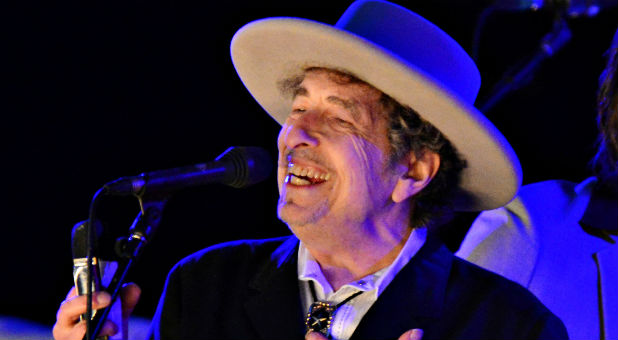Why Bob Dylan Is a Nobel Prize-Winning Prophet
Bob Dylan received the Nobel Prize in Literature yesterday. One of his most famous songs was recorded in 1964. It ends: “The line it is drawn the curse it is cast/The slow one now will later be fast/As the present now will later be past/The order is rapidly fadin’/And the first one now will later be last/For the times they are a-changin’!”
Dylan is more right today than ever.
The Wall Street Journal reports that just one in five millennials has ever tried a Big Mac. To win them back, McDonald’s has created digital media hubs in Singapore, London and Illinois.
According to The Washington Post, TV ratings for NFL games are down 11 percent from last season. One significant factor is the number of people watching games on digital platforms that do not contribute to television ratings. For more, see Ryan Denison’s Why the NFL is losing viewers.
A robot was unveiled yesterday that will cut your grass, collect leaves and shovel snow—all autonomously. It costs a mere $3,999. According to CNN, Facebook and Google are teaming up to build a gigantic internet cable under the Pacific Ocean to China. And Marie Osmond turned 57 yesterday. If you don’t know who she is, that’s my point.
Cultural transformation leaves casualties in its wake. Note this Wall Street Journal headline: “Students Flood College Mental-Health Centers.” The number of college students diagnosed with or treated for anxiety problems has risen 50 percent in the last five years. The Journal also reports that America’s technology boom has not produced enough jobs—employment at computer and electronic firms has fallen by more than 40 percent since 1990.
How should we respond to the angst of our day?
The best way to deal with a changing world is to depend completely on an unchanging God. When you need guidance today, remember that “the fear of the Lord is the beginning of wisdom” (Ps. 111:10). When last did you fear God?
Tim Keller tweeted yesterday: “Western cultures want a God who is loving and forgiving but not holy and transcendent.” Of course, we cannot separate the attributes of a person, much less of the Lord. His love and forgiveness are expressions of His holiness and transcendence.
Take a moment today to envision God as Isaiah experienced him: “In the year that King Uzziah died I saw the Lord sitting on a throne, high and lifted up, and His train filled the temple” (Is. 6:1). Hear the seraphs shout his holiness. Feel the “foundations of the thresholds” shake. Smell the temple “filled with smoke” (v. 2-4).
Now say with Isaiah: “Woe is me!” (v. 6). Confess God’s utter majesty and your utter need. Receive His forgiving mercy (v. 6-7). Then surrender to his call to your culture: “Here I am! Send me” (v. 8).
Are you awed by God today?














































